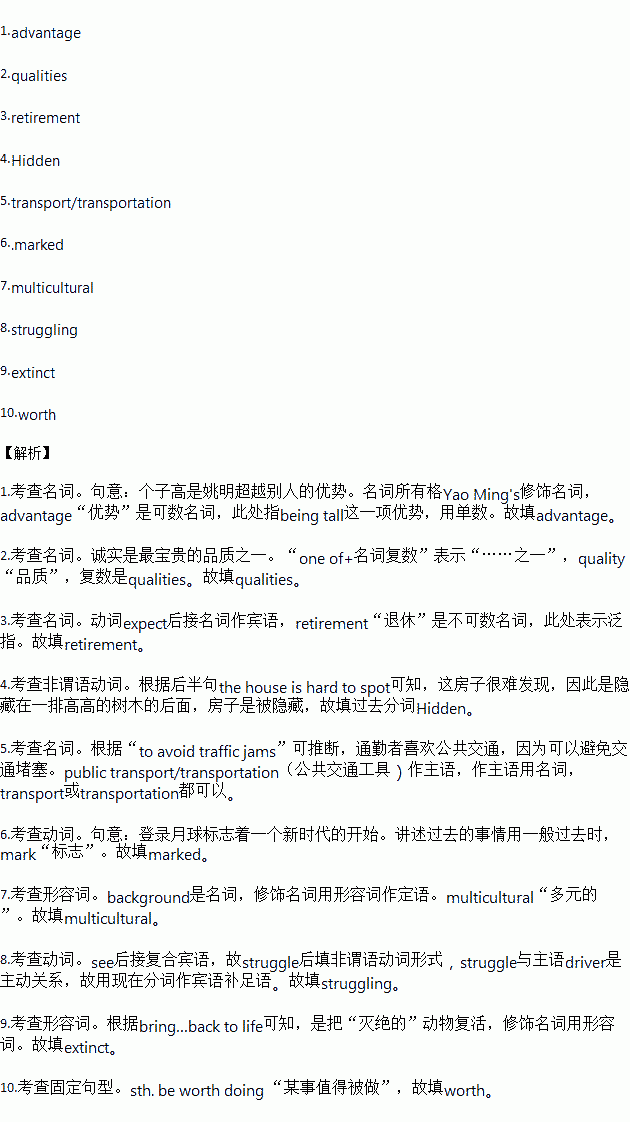题目内容
1.Being tall was Yao Ming's __________ over other players.
2.Honesty is one of the most valued q__________.
3.Our service in the school has been extended, which means we can't expect __________ until 65.(退休)
4.H__________ from view by a row of tall trees, the house is hard to spot.
5.Public __________ is preferred by many commuters (通勤者)to avoid traffic jams.
6.Moon landings m__________ a new beginning of an era.
7.His __________(多文化的) background won him the post as an international market manager.
8.Seeing the injured driver s__________ to his feet, I stopped him immediately.
9.It is theoretically possible to bring e__________ animals back to life.
10.The movie “Lalaland”(爱乐之城)is well __________ watching.
练习册系列答案
相关题目
2.She was so tired that she ________ asleep during the class.( )
| A. | became | B. | turned | C. | grew | D. | fell |
19.---Why is your English so good,Amy?
---Well,my uncle gives me a hand at home,for he______in Australia for ten years.( )
---Well,my uncle gives me a hand at home,for he______in Australia for ten years.( )
| A. | has lived | B. | lived | C. | had lived | D. | has been living |
5.Make sure you've got the passports and tickets and ______before you leave.( )
| A. | something | B. | anything | C. | everything | D. | nothing |

